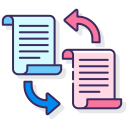 In research and academics, the formulation of a robust conceptual framework is the cornerstone of any successful study. It serves as the scaffolding upon which the entire research endeavor is built, providing structure, clarity, and direction to the pursuit of knowledge. However, understanding how to complete a conceptual framework can be a formidable challenge, often requiring a deep understanding of the research domain, theoretical underpinnings, and a keen eye for meticulous detail. At times, researchers find themselves grappling with the complexities of their project, struggling to bring their framework to fruition. It signifies the quest for expert guidance and support, a lifeline that can rescue a project from stagnation and propel it towards academic excellence. In this digital age, where collaboration and knowledge-sharing are at the forefront, we offer our expertise to help with completing a conceptual framework. Our team of seasoned researchers and scholars is dedicated to helping you navigate the intricacies of conceptual framework design. Whether you are embarking on a new research journey or revising an existing framework, our commitment is to empower you with the tools and insights needed to shape your ideas into a coherent, well-structured, and academically sound framework. Let us hold your hand on this transformative journey as we unravel the art of conceptual framework design, bridging the gap between your vision and its manifestation. Together, we can transform your research aspirations into reality, ensuring your work stands as a testament to precision and clarity in the realm of academia.
In research and academics, the formulation of a robust conceptual framework is the cornerstone of any successful study. It serves as the scaffolding upon which the entire research endeavor is built, providing structure, clarity, and direction to the pursuit of knowledge. However, understanding how to complete a conceptual framework can be a formidable challenge, often requiring a deep understanding of the research domain, theoretical underpinnings, and a keen eye for meticulous detail. At times, researchers find themselves grappling with the complexities of their project, struggling to bring their framework to fruition. It signifies the quest for expert guidance and support, a lifeline that can rescue a project from stagnation and propel it towards academic excellence. In this digital age, where collaboration and knowledge-sharing are at the forefront, we offer our expertise to help with completing a conceptual framework. Our team of seasoned researchers and scholars is dedicated to helping you navigate the intricacies of conceptual framework design. Whether you are embarking on a new research journey or revising an existing framework, our commitment is to empower you with the tools and insights needed to shape your ideas into a coherent, well-structured, and academically sound framework. Let us hold your hand on this transformative journey as we unravel the art of conceptual framework design, bridging the gap between your vision and its manifestation. Together, we can transform your research aspirations into reality, ensuring your work stands as a testament to precision and clarity in the realm of academia.
The significance of a conceptual framework in research
A conceptual framework is a critical component of research as it provides a structured foundation for understanding, analyzing, and interpreting complex phenomena. Its significance is known for ensuring:
- Guiding Research Design: A conceptual framework helps researchers define the scope and boundaries of their study. It assists in formulating research questions, hypotheses, and objectives by identifying key variables and their relationships. This clarity in design ensures that the research is focused and purposeful.
- Organizing Knowledge: It helps organize existing knowledge and theories relevant to the research topic. This enables researchers to build upon previous work and contributes to the cumulative nature of scientific knowledge.
- Enhancing Clarity: By visually representing the theoretical underpinnings of a study, a conceptual framework makes the research more understandable to both scholars and readers. It clarifies the theoretical perspective from which the study is conducted.
- Facilitating Data Collection and Analysis: A well-constructed conceptual framework assists in selecting appropriate data collection methods and analysis techniques. It guides researchers in identifying the variables to be measured and the relationships to be tested.
- Providing a Basis for Interpretation: A conceptual framework helps researchers make sense of their findings during the analysis phase. It provides a theoretical lens through which to interpret results and draw meaningful conclusions.
- Contributing to Theory Development: In some cases, a conceptual framework can evolve into a theory, adding to the body of theoretical knowledge in a particular field.
Why seeking our help to complete a conceptual framework is important
Upon realizing that “I need help to finish my conceptual framework,” you can contact us. Given that a conceptual framework forms the foundation of any research, guiding the entire study's design and execution. We can help to define the research problem, identify variables, and establish the theoretical basis for the study. Given its pivotal role, ensuring its accuracy and completeness is essential. Also, collaborating with our experts can provide valuable insights and perspectives. They can offer constructive criticism, ensuring that your framework is well-grounded and logically structured. Their experience can help you avoid common pitfalls and biases, ultimately enhancing the quality of your research. Additionally, seeking our help fosters a culture of collaboration and learning. Engaging with peers or mentors promotes knowledge exchange, allowing you to refine your ideas and expand your understanding of the subject matter. This collaborative approach can lead to more innovative and robust conceptual frameworks. More so, we can increase the credibility and validity of your research. A well-vetted conceptual framework is more likely to be accepted by the academic community and considered a reliable foundation for your study. Overall, seeking our help to develop your work ensures that your research is rigorous, well-informed, and better positioned for success.
How a solid conceptual framework improves your project
 A solid conceptual framework is the backbone of any successful project, providing a structured and comprehensive approach that significantly enhances its overall quality and effectiveness. It helps in clarifying project goals and objectives. By clearly understanding what the project aims to achieve, all stakeholders can align their efforts and resources towards a common purpose, reducing confusion and misdirection. Also, a robust framework aids in decision-making. It serves as a guide for making informed choices throughout the project lifecycle, ensuring that actions and strategies are consistent with the project's overarching vision. This minimizes the risk of pursuing misguided or conflicting approaches. Moreover, a well-defined write-up facilitates effective communication. Team members can communicate more efficiently when they share a common understanding of the project's structure, goals, and key concepts. This fosters collaboration and minimizes misunderstandings, improving overall project coordination. Relevantly, a solid project enables better monitoring and evaluation. It provides a basis for establishing key performance indicators and assessing progress towards project objectives. This data-driven approach allows for timely adjustments and improvements, ultimately enhancing the project's chances of success. In summary, a strong conceptual framework is fundamental for project clarity, decision-making, communication, and performance evaluation, all of which contribute to project success.
A solid conceptual framework is the backbone of any successful project, providing a structured and comprehensive approach that significantly enhances its overall quality and effectiveness. It helps in clarifying project goals and objectives. By clearly understanding what the project aims to achieve, all stakeholders can align their efforts and resources towards a common purpose, reducing confusion and misdirection. Also, a robust framework aids in decision-making. It serves as a guide for making informed choices throughout the project lifecycle, ensuring that actions and strategies are consistent with the project's overarching vision. This minimizes the risk of pursuing misguided or conflicting approaches. Moreover, a well-defined write-up facilitates effective communication. Team members can communicate more efficiently when they share a common understanding of the project's structure, goals, and key concepts. This fosters collaboration and minimizes misunderstandings, improving overall project coordination. Relevantly, a solid project enables better monitoring and evaluation. It provides a basis for establishing key performance indicators and assessing progress towards project objectives. This data-driven approach allows for timely adjustments and improvements, ultimately enhancing the project's chances of success. In summary, a strong conceptual framework is fundamental for project clarity, decision-making, communication, and performance evaluation, all of which contribute to project success.
Developing a conceptual framework is a crucial step in any research or project, as it serves as the foundation upon which the entire endeavor is built. The process of creating a framework involves identifying key concepts, relationships, and variables that are central to the research or project's objectives. It provides a clear and organized structure that guides the collection and analysis of data, making the research more focused and effective. A well-designed framework not only helps researchers and project managers clarify their thinking but also aids in communicating their ideas to others. It acts as a roadmap, showing the logical flow of ideas and how different elements are interconnected. This, in turn, enhances the transparency and credibility of the research or project, as it demonstrates a systematic and rigorous approach to problem-solving. Furthermore, a robust framework allows for better decision-making, as it enables stakeholders to identify potential gaps in knowledge and areas that require further investigation. It also assists in identifying potential risks and opportunities, thus contributing to more informed choices and strategies. Finishing a conceptual framework design is a vital step in your research or project journey. It not only helps you clarify your ideas but also strengthens the overall quality and impact of your work. Therefore, investing time and effort in developing a well-structured conceptual framework is a wise and rewarding endeavor.
How to Finish a Conceptual Framework | Framework Writing Tips
 Writing a full-bodied conceptual framework is an essential step in the realm of academia, research, and professional endeavors. It serves as the blueprint that underpins the structure of your work, providing a clear path for your ideas to take shape and flourish. Whether you're a student embarking on a thesis, a researcher diving into a new project, or a professional tackling a complex problem, the ability to create a well-defined conceptual framework is invaluable. However, the process of constructing a comprehensive framework can be a discouraging and intricate task. This is why we offer the best conceptual framework completing services. In this era of information overload, it's not uncommon to feel overwhelmed when trying to develop a framework that aligns with the objectives of your study or project. That's where the expertise and guidance of professionals in framework writing can make all the difference. We offer a lifeline to those seeking clarity and precision in their work, helping them navigate the intricacies of theory and methodology. We will help you explore the art of finishing a conceptual framework, sharing valuable tips and insights to empower you in writing a framework that not only supports your research but also enhances its impact. Whether you're just starting or fine-tuning your work, we will prove indispensable in your journey toward academic and professional success. So, let's delve into the world of frameworks and discover how to give shape and substance to your ideas.
Writing a full-bodied conceptual framework is an essential step in the realm of academia, research, and professional endeavors. It serves as the blueprint that underpins the structure of your work, providing a clear path for your ideas to take shape and flourish. Whether you're a student embarking on a thesis, a researcher diving into a new project, or a professional tackling a complex problem, the ability to create a well-defined conceptual framework is invaluable. However, the process of constructing a comprehensive framework can be a discouraging and intricate task. This is why we offer the best conceptual framework completing services. In this era of information overload, it's not uncommon to feel overwhelmed when trying to develop a framework that aligns with the objectives of your study or project. That's where the expertise and guidance of professionals in framework writing can make all the difference. We offer a lifeline to those seeking clarity and precision in their work, helping them navigate the intricacies of theory and methodology. We will help you explore the art of finishing a conceptual framework, sharing valuable tips and insights to empower you in writing a framework that not only supports your research but also enhances its impact. Whether you're just starting or fine-tuning your work, we will prove indispensable in your journey toward academic and professional success. So, let's delve into the world of frameworks and discover how to give shape and substance to your ideas.
Common challenges of finishing a conceptual framework
Finishing a framework, whether in the context of research, business strategy, or any other domain, can be a challenging process. Here are some common challenges:
- Ensuring that the concepts within the framework are clearly defined and well-understood can be difficult. Ambiguity or vagueness can lead to misinterpretation.
- Combining diverse ideas and concepts into a cohesive framework can be challenging. Ensuring that all components work together harmoniously is essential.
- The framework must be relevant to the specific problem or context it is meant to address. Ensuring its practicality and applicability can be a hurdle.
- Supporting the framework with empirical data or evidence can be demanding. Gathering and analyzing data to validate the concepts can be time-consuming.
- Convincing stakeholders of the framework's value and getting their buy-in can be a significant challenge, especially in organizational settings.
- Ensuring that the framework remains flexible and adaptable to changing circumstances and new information is crucial for its long-term viability.
- Effectively communicating the framework to a wider audience, especially if it's complex, is a common challenge.
- Limited resources, such as time and funding, can hinder the completion of a conceptual framework.
- Managing the complexity of the framework without oversimplifying it can be a delicate balancing act.
A quick guide on how to design & complete a conceptual framework
Designing and completing a conceptual framework involves several key steps. This is how to finish a conceptual framework;
- Identify the Research Problem: Clearly define the research problem or topic you want to investigate. This problem should be specific and researchable.
- Review Existing Literature: Conduct a thorough literature review to understand what research has already been done in your field. This will help you identify gaps and build upon existing knowledge.
- Define Key Concepts: Clearly define the key concepts and variables that are relevant to your research. These should be the building blocks of your framework.
- Develop a Conceptual Model: Create a visual representation of your framework using diagrams, flowcharts, or other graphical tools. This model should illustrate the relationships between the key concepts and variables.
- Formulate Hypotheses: Based on your conceptual framework, formulate testable hypotheses or research questions that guide your study.
- Collect and Analyze Data: Collect data that corresponds to your variables and test your hypotheses using appropriate research methods and statistical techniques.
- Revise and Refine: As you analyze your data, revise and refine your conceptual framework if necessary. Ensure that it accurately represents the relationships you observed.
- Interpret Results: Interpret your research findings in the context of your conceptual framework, discussing how they contribute to existing knowledge.
- Write Your Report: Prepare a research report or paper that presents your conceptual framework, methodology, findings, and conclusions in a clear and organized manner.
The key elements of a complete conceptual framework
A complete framework is a foundational structure that guides the understanding and analysis of a particular subject, problem, or field of study. It comprises several key elements:
- Purpose and Scope: Clearly define the purpose and scope of the framework, outlining the specific questions or issues it aims to address.
- Conceptualization: Identify and define the key concepts, variables, and relationships within the subject matter. This involves creating a conceptual model that represents the abstract ideas and their interconnections.
- Theoretical Basis: Ground the framework in relevant theories or existing literature, providing a theoretical foundation for understanding and interpreting the subject.
- Assumptions: Explicitly state any assumptions or premises that underlie the framework, acknowledging potential limitations and biases.
- Framework Components: Organize the framework into components, such as constructs, variables, dimensions, or categories, and elucidate their meanings and roles.
- Operationalization: Describe how abstract concepts are measured or operationalized, facilitating empirical research or practical application.
- Integration: Ensure coherence and consistency across all elements of the framework, so that it provides a holistic and comprehensive understanding of the subject.
- Utility and Application: Highlight the practical value of the framework by demonstrating its potential applications, guiding research, decision-making, or problem-solving.
 Preparing a conceptual framework is an essential step in any research or academic endeavor. It serves as the backbone of your work, providing structure, clarity, and direction to your ideas and arguments. Understanding the key components of a complete framework, such as the variables, relationships, and theoretical underpinnings, is crucial. Moreover, conducting a thorough literature review to identify existing models and theories that align with your research objectives can enrich your framework. Additionally, the iterative nature of framework development cannot be overlooked, as it requires multiple revisions and refinements to reach its full potential. Furthermore, maintaining consistency in terminology, concepts, and definitions is vital for a coherent framework. Clear and concise writing, as well as the use of visuals like diagrams and charts, can enhance the communicative power of your framework. In essence, mastering the art of framework writing is a skill that can significantly elevate your research, ensuring that your ideas are well-organized, well-supported, and effectively communicated. We can help you to create a robust framework that not only supports your research but also contributes to the broader body of knowledge in your field.
Preparing a conceptual framework is an essential step in any research or academic endeavor. It serves as the backbone of your work, providing structure, clarity, and direction to your ideas and arguments. Understanding the key components of a complete framework, such as the variables, relationships, and theoretical underpinnings, is crucial. Moreover, conducting a thorough literature review to identify existing models and theories that align with your research objectives can enrich your framework. Additionally, the iterative nature of framework development cannot be overlooked, as it requires multiple revisions and refinements to reach its full potential. Furthermore, maintaining consistency in terminology, concepts, and definitions is vital for a coherent framework. Clear and concise writing, as well as the use of visuals like diagrams and charts, can enhance the communicative power of your framework. In essence, mastering the art of framework writing is a skill that can significantly elevate your research, ensuring that your ideas are well-organized, well-supported, and effectively communicated. We can help you to create a robust framework that not only supports your research but also contributes to the broader body of knowledge in your field.











 Does your work Require Rewriting Help?
Does your work Require Rewriting Help?